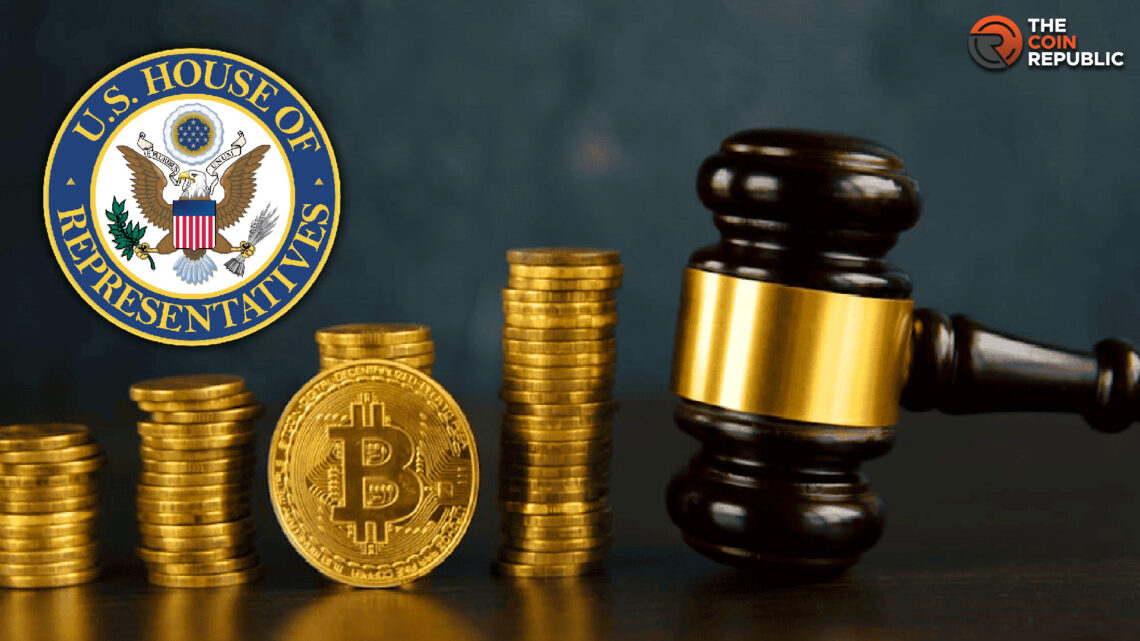- 1 A crypto oversight bill was recently introduced in the United States.
- 2 The bill will require CFTC and SEC to work together in regulating digital assets.
A formal bill was introduced by the U.S. Senior House Republicans that would dramatically change how crypto operates in America. The bill has been altered from its initial draft presented in June 2023. Notably, the bill changes the definition of digital assets by excluding conventional securities.
U.S. Introduces Crypto Regulation Bill
The Commodities and Futures Trading Commission (CFTC) and the Securities and Exchange Commission (SEC) had been in a feud to be the authority to regulate digital assets. If they are commodities, they will come under CFTC, while SEC would police them if they are securities. This duel created a scenario where both agencies fought for authority, which led to the United States losing its race in digital assets.
The bill proposes that CFTC and SEC join hands and would be mandated to develop regulations for exchanges and trading platforms, especially those related to digital assets. The 200-page bill is known as “the Financial Innovation and Technology for the 21st Century Act.”
Details of the Proposed Bill – How it will act and regulate digital assets
Per the bill, the regulators would not be allowed to impose restrictions on private individuals regarding ownership of digital assets. Also, it entails that the digital asset initiatives would be free from the general registration requirement customary from securities offerings.
Issuers can offer tokens worth $75 Million in a year, but the sales to unaccredited investors would be prohibited. These are the individuals who buy the majority of these tokens.
Moreover, any project will have to be certified by the authorities. This would determine whether the project is sufficiently decentralized to the point where a token can be considered a commodity. Even then, the issuer will have to disclose the information to the SEC regarding annual and semiannual reports of the projects.
Any issuer can sell up to 10% of the token to a single buyer. Also, the transactions cannot involve any other digital asset or traditional debt or stock. The bill also has specific clauses prohibiting mixing customers’ assets. Meaning that the company cannot mix users’ funds with their own; this is done to prevent FTX-like incidents.
The token issuers must register in the United States and have a solid business strategy. Also, any issuer who was a target of SEC enforcement action in the last five years before the launch date of the token will not be allowed. Securities backed by a digital asset might be traded on a different trading platform under the oversight of the SEC. At the same time, commodities will be overseen by the CFTC.
Current Crypto Regulatory Scenario in the United States
Experts argue that the current regulatory scenario is ambiguous in the United States. The regulatory crackdown by the SEC on the industry, especially after the FTX-saga, has seen a rise of 183%. These numbers exclude the much-hyped lawsuits against Coinbase and the world’s biggest crypto exchange.
Billionaire Mark Cuban called for a simpler version of regulations, saying that the current version is hard to understand and follow. He points out that the existing rules for crypto startups and companies wanting to enter Web3 are complex and do not serve a desired purpose.
With the acceptance of Bitcoin ETF requests, the SEC has shown that it can be thoughtful of the industry. If the bill passes and becomes a comprehensive regulatory framework, the United States can become a world leader in digital assets.

Andrew is a blockchain developer who developed his interest in cryptocurrencies while pursuing his post-graduation major in blockchain development. He is a keen observer of details and shares his passion for writing, along with coding. His backend knowledge about blockchain helps him give a unique perspective to his writing skills, and a reliable craft at explaining the concepts such as blockchain programming, languages and token minting. He also frequently shares technical details and performance indicators of ICOs and IDOs.


 Home
Home News
News










